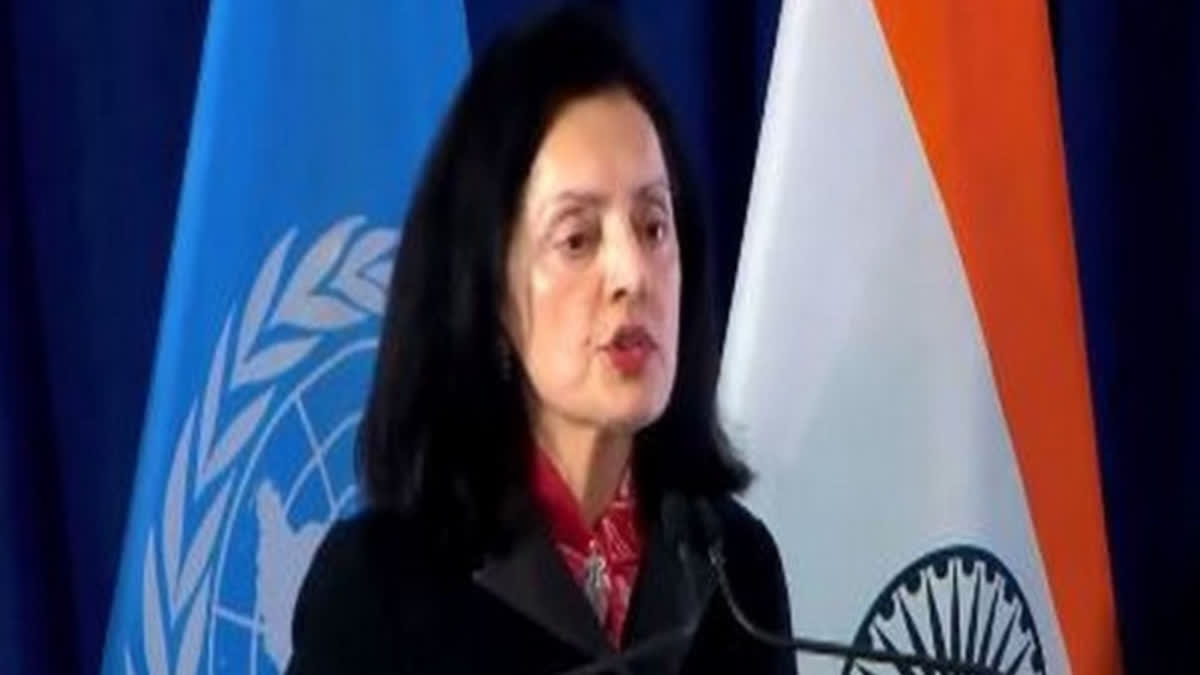New York : India's strategic position enables it to engage with various power blocs constructively and its ability to navigate complex diplomatic waters showcases the country as a potential mediator in international conflicts, the country's envoy to the UN has said.
"In an era marked by rapid changes and complex challenges, India emerges not just as a nation of immense diversity and cultural richness, but also as a key player on the international stage, embodying the principles of cooperation, peace and mutual respect, India's Permanent Representative to the UN Ambassador Ruchira Kamboj said here.
Kamboj delivered a special address on the topic India in the Emerging Global Order' at the India: The Next Decade' conference hosted by the Deepak and Neera Raj Center at Columbia University's School of International and Public Affairs last week. Kamboj said India's ancient philosophy of Vasudhaiva Kutumbakam' the world is one family - positions the country uniquely as a mediator and conciliator in world affairs.
In recent years, the international community has witnessed India's proactive approach to fostering dialogue and understanding across diverse nations, she said in her prepared remarks. Moreover, India's strategic position, coupled with its non-aligned history, enables it to engage with various power blocs constructively," she said.
"India has shown that it is possible to maintain friendly relations with countries having differing ideologies and governance models. This ability to navigate complex diplomatic waters showcases India as a potential mediator in international conflicts, she said at the conference attended by policy experts, students, economists and academicians.
Kamboj also underlined that India's G20 presidency, which culminated in the Leaders' Summit in Delhi in September and the unanimous endorsement of the New Delhi Leaders' Declaration, showcased the country's capacity to navigate a complex geopolitical landscape, achieving consensus among diverse viewpoints.
Kamboj's remarks come at a time when the world grapples with myriad challenges, including the recent Israel-Hamas conflict and the prolonged Ukraine war, and global bodies such as the UN Security Council, tasked with the maintenance of international peace and security, have remained divided and ineffective in dealing with these challenges.
In her address, Kamboj noted that the UN has not been able to deliver on its mandate due to its inability to adapt itself to a rapidly changing geo-strategic and geo-economic environment. She reiterated that the issue of urgent UN reforms can no longer be put on the back burner and the process cannot be completed without the composition of the Security Council changing to reflect contemporary realities of the 21st century.
